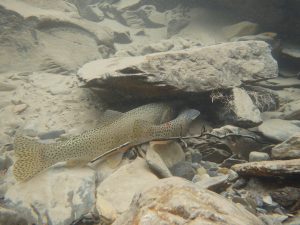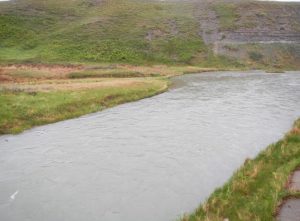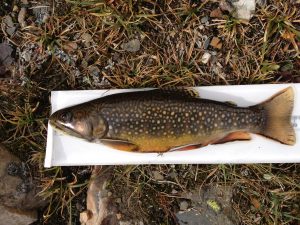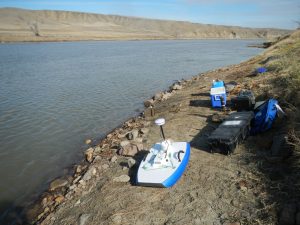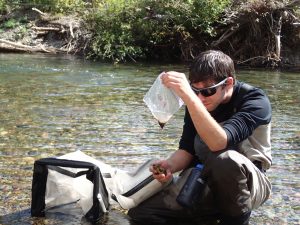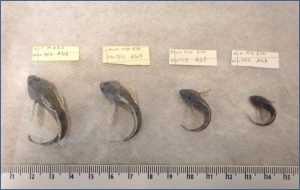Conservation of Freshwater Fishes
Research
Freshwater fishes are among the most imperiled groups globally with rates of decline comparable to declines in tropical rainforest species. Research in lab focuses on developing a better understanding of the mechanisms for the decline of freshwater organisms. This research has four main themes, including: 1) threats to freshwater species at risk, 2) stream augmentation and hydrologic alteration, 3) climate change impacts to freshwater fishes, and 4) the spread and impact of invasive species. To achieve our research goals we utilize a variety of expertise, including in: movement ecology and telemetry, assessing foodwebs using stable isotope analysis, population genetics and environmental DNA (eDNA) and morphology and swim performance. Click on the photos, articles or news items to learn more about some of the research we are conducting on the conservation of freshwater fishes! Note: * Lab members.
Articles from the Lab

Hambrook J., Kimmel N., Robinson R., Foster D., Poesch M.S. and P. Hanington. (2025) Development, validation and implementation of eDNA-focused qPCR assays to detect and distinguish between Goldfish (Carassius auratus) and Prussian Carp (Carassius gibelio). Environmental DNA.

Veilleux, H., McPherson, M.*, Cott, P., Poesch, M., S., Glover, C., and G. Goss. (2025) Environmental DNA as a tool to detect Arctic grayling and their habitat preferences in the Northwest Territories, Canada. Arctic Science 11: 1-12.

Serbu, J. A., St. Louis, V. L., Emmerton, C. A., Tank S., Criscitello, A., Silins, U., Bhatia, M., Cavaco, M., Christenson, C., Cooke, C., Drapeau, H., Enns, S. J., Flett, J., Holland, K., Lavelle-Whiffen, J., Ma, M., Muir, C., Poesch, M. S., and J. Shin. (2023). A comprehensive biogeochemical assessment of climate-threatened glacial river headwaters on the eastern slopes of the Canadian Rocky Mountains. JGR Biogeosciences 129: e2023JG007745.

McPherson, M.*, Lewis, J.B., Cott, P.B., Baker, L.F., Mochnacz, N.J. Swanson, H.K., and S. Poesch. (2023) Habitat use by fluvial Arctic Grayling (Thymallus arcticus) across life stages in northern mountain streams. Environmental Biology of Fishes 106: 1001-1020.

